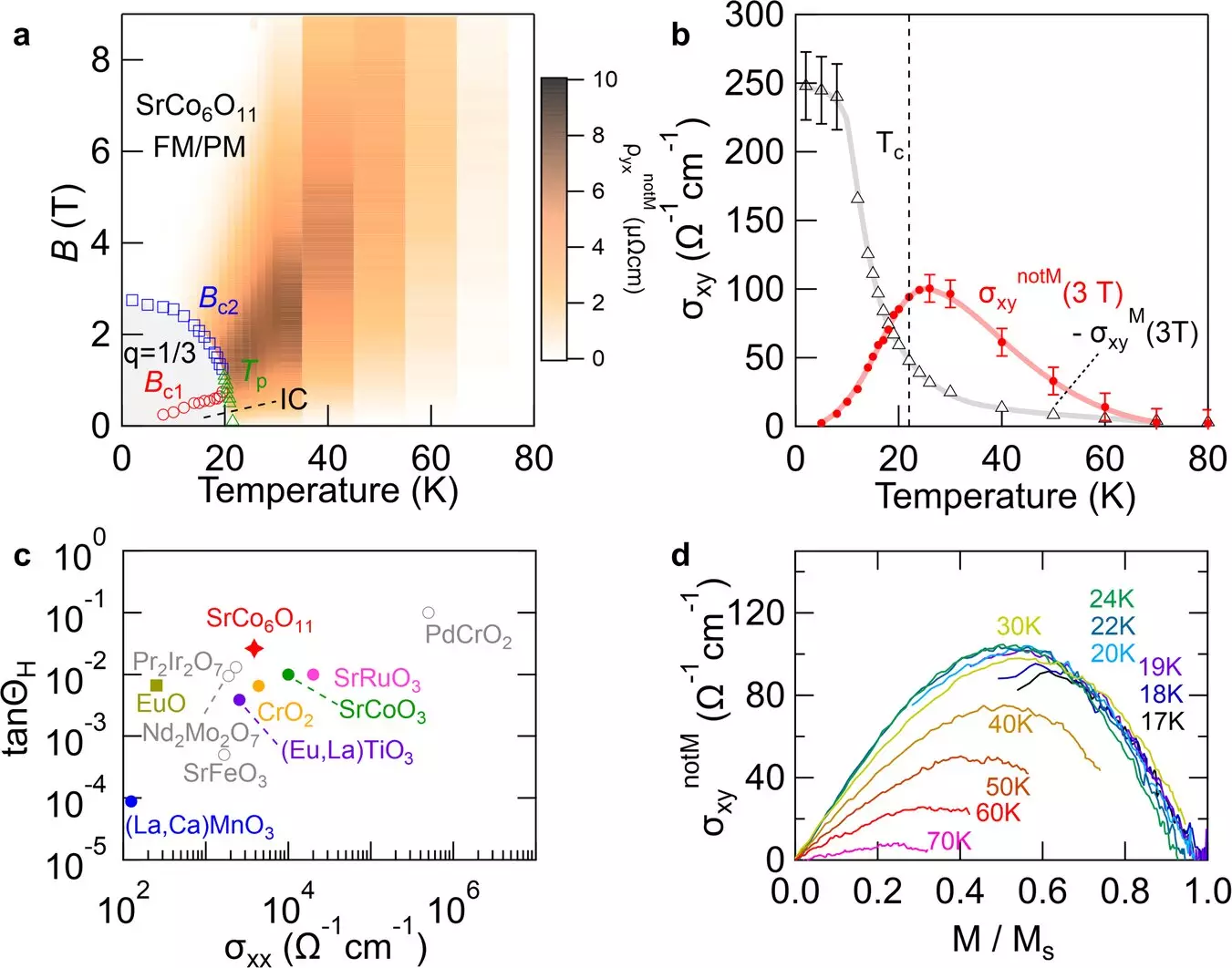A recent study conducted by researchers at the University of Tsukuba has shed new light on the phenomenon of electron spin fluctuations in magnetic materials. These fluctuations have been found to trigger a large anomalous Hall effect during a phase transition referred to as the devil’s staircase magnetic transition. This discovery is crucial for the advancement of magneto-thermoelectric conversion, a technology that has the potential to revolutionize power generation and lead to the development of innovative thermoelectric materials.
The anomalous Hall effect is a phenomenon observed in magnetic metals, where a voltage is generated perpendicular to the magnetic field and current when an electric current flows through a metal sample. This effect can occur independently of an external magnetic field, especially in ferromagnetic materials with aligned electron spins. Typically, the anomalous Hall effect is only evident below a specific temperature known as the magnetic transition temperature, where the alignment of spins is maintained. However, above this temperature, the effect diminishes as the spins become disordered.
In their study, the researchers observed a remarkable anomalous Hall effect in the magnetic material SrCo6O11 at temperatures exceeding the magnetic transition temperature. This material exhibits a unique magnetic transition phenomenon known as the “spin-fluctuating devil’s staircase,” which contributes to the significant effect observed. The researchers believe that the intense scattering of conduction electrons due to a specific type of spin fluctuation, known as spin-flip fluctuation, plays a pivotal role in the emergence of this effect.
The magnitude of the anomalous Hall effect observed in this study, characterized by the anomalous Hall angle, is one of the largest ever recorded for magnetic oxides. This finding has profound implications for the field of magneto-thermoelectric conversion, offering a new principle for designing materials that could enhance the efficiency of this technology. The development of new thermoelectric conversion materials based on these principles could have far-reaching consequences for the energy sector.
The research conducted by the University of Tsukuba research group has opened up exciting possibilities in the study of magnetic materials and their potential applications in power generation technology. The discovery of the anomalous Hall effect triggered by electron spin fluctuations represents a significant advancement in the field and paves the way for further exploration of novel materials and technologies.


Leave a Reply